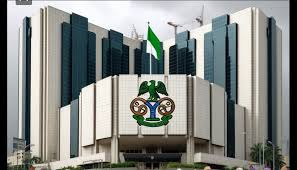…As 32% of Nigerians Remain Financially Excluded
The Central Bank of Nigeria (CBN) disclosed on Wednesday that about 54 million Nigerian adults now hold certified bank accounts, representing 52 percent of the adult population in 2023.
This revelation was shared in Abuja during the Financial Literacy Fair, part of activities marking the 2024 World Savings Day.
CBN noted that while 5 percent of the adult population is captured under an “other formal” financial inclusion category, 11 percent are informally included in financial systems.
However, a significant 32 percent, or roughly 33.9 million Nigerians, remain financially excluded, unable to access formal banking services.
Speaking at the event, Ibrahim Yahaya, the Acting Head of the CBN’s Consumer Protection Department, highlighted a gradual improvement in Nigeria’s savings culture, a trend that aligns with the CBN’s ongoing financial inclusion efforts.
“Over time, savings have improved significantly if you look at it from the deposit side.
“Deposits in the banking industry have been on the increase over time,” Yahaya noted.
However, he acknowledged that several factors continue to discourage Nigerians from saving, citing the persistent struggle to meet immediate financial needs due to limited income.
“People’s income has always been a point of agitation—it’s never enough to meet immediate needs and wants,” he said.
As part of efforts to instill a savings culture early on, the CBN invited school children to participate in the World Savings Day event, which takes place every October 31.
According to Yahaya, the objective is to encourage young Nigerians to adopt saving habits from childhood.
“This day serves to instill the culture of savings among the youth, emphasizing its importance.
“We want children to grow up with this discipline and for parents to support this idea of saving in view of future needs,” Yahaya explained.
He highlighted the significance of saving for unexpected situations, encouraging Nigerians to “have something like a fallback” in times of financial difficulty.
Yahaya also elaborated on the economic impact of savings, underscoring its role in lending and, ultimately, economic growth.
“Savings in the bank form part of deposits, which banks use to lend, especially to the real sector, driving economic growth,” he said.
Addressing the children, Yahaya advised them to cultivate a habit of saving, regardless of their financial challenges.
“If you say you need to have plenty before you save, then you will never do it. But if you take it as a habit, set something aside no matter the challenges, you will see its importance tomorrow,” he encouraged.
While acknowledging the challenges posed by inflation, Yahaya emphasized the importance of making savings a lifelong habit.
“Inflation has been there. It is more challenging these days, but if you adopt savings as part of your life culture, it becomes easier to cope with,” he stated.
He added, “If you have savings now, you’ll understand its impact, especially in these trying times,” urging Nigerians to make saving a priority despite the economic climate.
Do you want to share a story with us? Do you want to advertise with us? Do you need publicity for a product, service, or event? Contact us on WhatsApp +2348183319097 Email: platformtimes@gmail.com
We are committed to impactful investigative journalism for human interest and social justice. Your donation will help us tell more stories. Kindly donate any amount HERE




